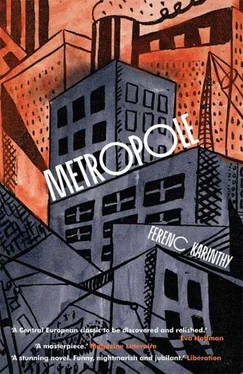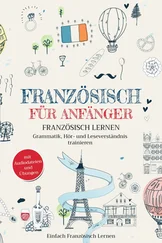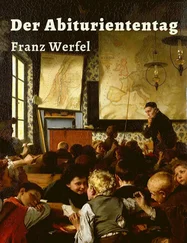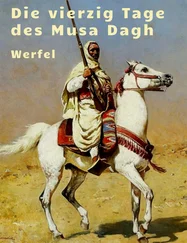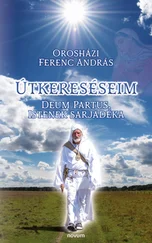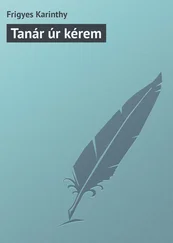There was white fluffy candy-floss and little spicy sausages spluttering in fat but so many people were waiting to be served he thought he’d not get near enough to buy one. Stalls offered their wares of seeds, flowers and soil, then, a little further on, a range of animals: white rabbits, domestic pigeons, canaries, cockatoos, tortoises, and — something he had never seen before — a kind of scaly, crested, six-legged serpent-like creature sitting in a cage, motionless and glassy-eyed, stiff as death. A huge, red-faced man wearing a chequered jacket with a threadbare velvet collar — his enormous hands and feet reminiscent of Patagonians in travellers’ tales — was demonstrating some cleaning fluid, pouring ink, oil and tomato juice over a pair of light-coloured trousers brought out for the purpose, then making the stains disappear while continually jabbering on in patois. A little further off a fishmonger in a blood-stained apron took Budai, who had just glanced at him, for a customer, grabbed hold of him and was pulling at his coat, trying to sell something that might have been a fair-sized sturgeon, waving his cleaver, explaining, persuading, drawing the blade across the fish’s delicate skin to show how fresh it was, dangling it before his nose, gesticulating, demanding, practically throwing the fish at him… But in most instances it was a case of Budai addressing others, trying first oriental, then Slavonic languages and then again English, Dutch, Spanish and Portuguese. The answers he received were once again incomprehensible: some people simply stared at him in a puzzled, faintly foolish fashion, while others paid him no attention at all, or shoved him out of the way, clearly regarding him as a nuisance, possibly even as a beggar. Unable to take any more of this Budai relapsed into awkwardness and confusion.
Nor could he see any sign of a railway station whichever way he looked. There was a big, grey building of glass and steel near the market but as he approached it turned out to be a covered market-hall that was temporarily closed. Only at the side entrances was there any sign of activity: packages were being stacked, empty crates and piles of sacks were being thrown onto waiting trucks while, behind them, incoming goods were arriving on conveyor belts with cranes to lift the heavier bales and hoppers while workers carried on heaving barrels, vats packed in straw, blocks of ice and lard and frozen meat. Then a new truck appeared loaded with vegetables — leeks or some such thing — and the stout, blue-overalled driver got out. Seeing Budai standing and staring at the ramp, he grabbed Budai’s arm and pulled at him, indicating the loading area beyond, saying something that sounded like:
‘Duhmuche bruedimruechuere! Kluett!’
The man had taken him for a tramp thinking that was why he was hanging about here. Had he been looking for amusement he would have found this amusing but as it was he made his way back to the underground station to continue his investigations in the queue as he made a note of the stations that might turn out to be railway terminals.
According to the map he should follow the purple line, then change to the green one. The carriages were no less full than before. He made a brief anthropological survey of his fellow travellers to see what was the most common skin colour, type and shape of face. There was a wide variety even in this narrow sample from coal black through brown to the extremely pale, though pure racial types were, as he noted, quite rare, few at least that might be considered pure European, African or Far Eastern. Not that any part of the world was likely to be ethnically homogenous, since larger cities, such as ports, for example, would expect to have mixed populations. Whatever the case, the majority of people here seemed to be of mixed race or at some transitional point between various races like that Japanese-looking, slant-eyed, young woman with light blonde hair and slightly Negroid lips who had just stepped from the carriage alongside him carrying a handbag and so many shopping bags that they got tangled up with each other. Budai seized the opportunity to turn to her and since speaking proved useless to imitate an engine with his arms in order to communicate his request. The woman smiled as if she understood him and even said something, then hurried on nodding to him to follow her. At last Budai felt he made contact with someone and kept close to her making quite sure they were not separated while she nodded to him from time to time indicating the way ahead. The exit was relatively near at this station — once again broad white arrows indicated the direction — and they must have been quite close to the surface, the corridor leading into a large star-shaped hall from which other corridors radiated, when out of one of the side passages a great wave of humanity suddenly broke over them and by the time he had recovered they had been swept apart by an irresistible force so that however he struggled, whatever he tried, he could not keep up with her. Her blonde hair flashed before him one last time a few metres ahead, then another seething mass bore her away and she disappeared without trace in the dense impenetrable swirl of anonymous others. Budai waited for her in the street a while but failed to spot her among those emerging from the station.
He set off to the left, the direction indicated by the woman. This part of town was not quite like the others, looking older, with a more intimate air, the streets narrower, though just as crowded. It must be the city centre, he thought, that is if the city had one. He walked past an old-looking wall that was part of a somewhat later house but deliberately revealed by the surrounding stucco, with a carved inscription above it, no doubt something to the effect that this was a historical monument, possibly part of the ancient city wall. The shops here were shut too. He turned down a winding lane where paint had peeled from the walls of crumbling houses, where rubbish, dirt, and fruit peelings littered the ground and cats wound between people’s feet, slipping into foul-smelling gateways. A light drizzle started again: blank-faced firewalls rose damp and grey into the empty air.
He arrived at a square with a fountain at its centre, a stone elephant spraying water from its trunk. The traffic flowed around it in a ceaseless and forbidding stream as if it had been there for ever and would continue into eternity. Another similarly busy square opened from this one, the cars sweeping through a wide gate to a fort several floors high, its ramparts, complete with arrow slits, running around the walls and a dome on top. The whole thing seemed vaguely familiar but he couldn’t place it. He examined it from various angles until suddenly he recognised it: miniature copies of the tower were being sold as souvenir key-rings back at the hotel! What age and what style the fort was built in was rather difficult to say. The lower part with its pointed windows might have been Gothic but the hemispherical dome seemed more oriental, possibly Moorish. The fort must have served as a military post at some time but architectural monuments of this type, to a tyro like Budai at least, tended to look pretty much alike, comprising heavy dense masses, raw unshaped stone, all amounting to a chilly utilitarianism such as may be found in Roman stockades, medieval watch-towers, even the Great Wall of China.
There was, however, no railway station here either though he reasoned that the various airline offices should be situated somewhere in the area and that he would recognise them even if they happened to be closed today for there would be model aeroplanes, maps and pictures of possible destinations in their windows. But all he saw were squares and streets, tenements large and small, closed shops, drawn blinds, cars, people, more streets and more squares. He began to wonder whether he was in the city centre after all since the old town, the historic centre, might not be the centre of the city as it now was, much as the City of London was no longer the centre of London. Or was there an even older quarter somewhere? Or maybe there were other inner cities? Whom would he ask? How would he find out?
Читать дальше
